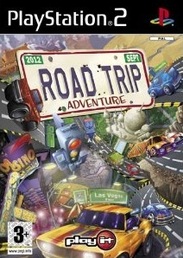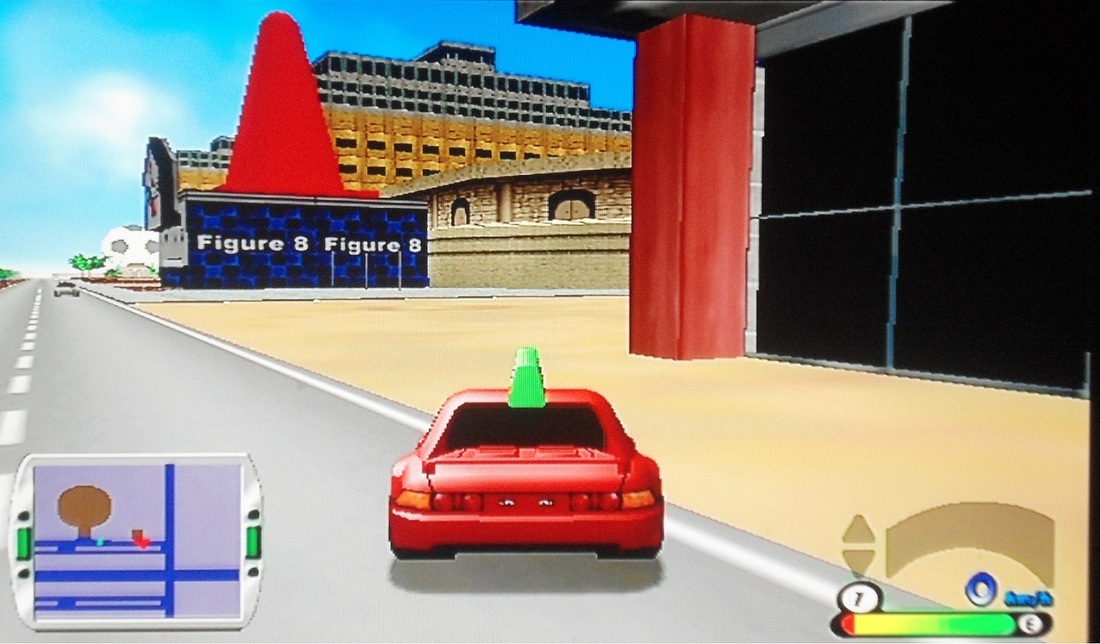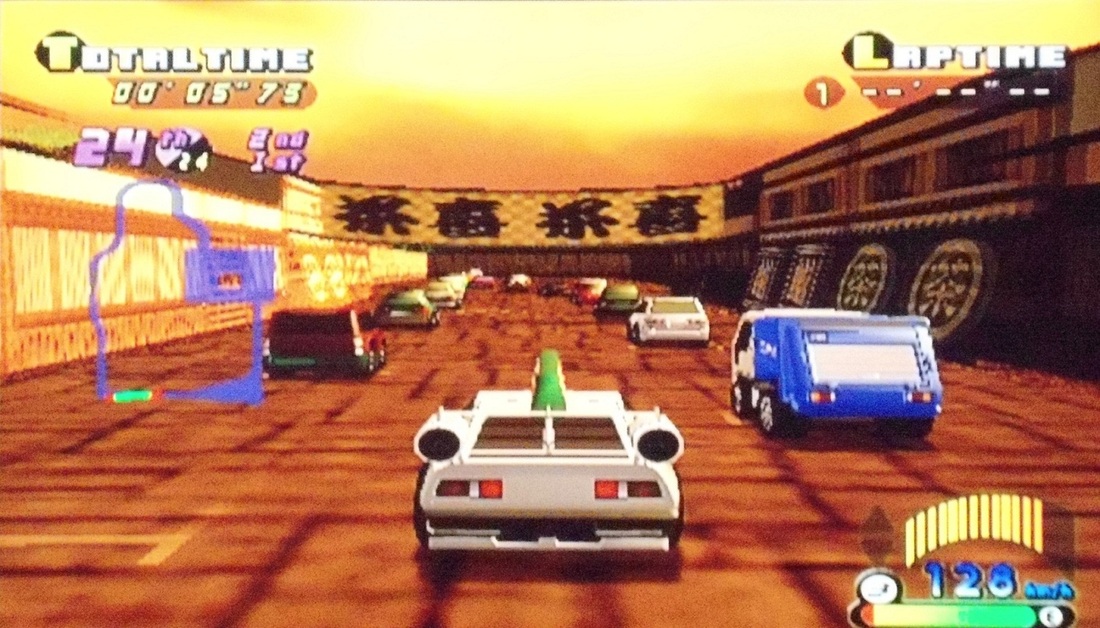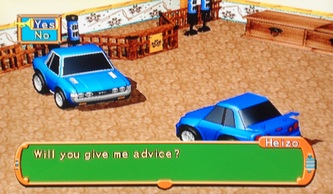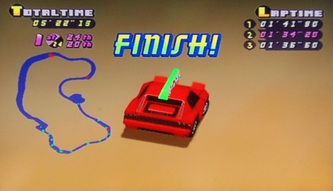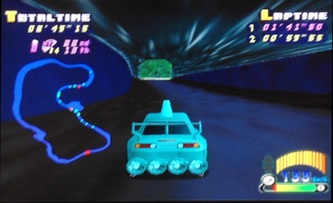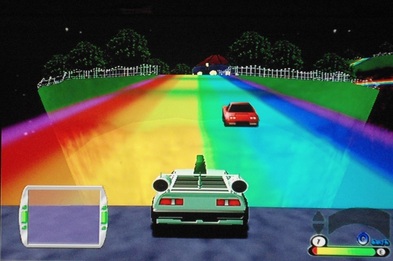ROAD TRIP ADVENTURE (PS2)
Road Trip Adventure’s meld of racing and role-playing is
among the quirkiest genre hybrids you could wish to see. Based around the Choro
Q brand of miniaturised Japanese toy cars, this ‘Car-PG’ imagines a world populated
by talking vehicles, where loot is earned through winning races rather than
battles, where you’ll change chassis’ instead of armour, and evolve not through
level-grinding, but by fitting faster parts.
One of Road Trip Adventure’s coolest facets is an open-world environment that’s significantly more expansive than you’d initially have thought possible. The cartoon cars and bright, unrefined visual style may look cheap by PS2 standards, but they also help create the illusion of a giant toybox, a sensation enhanced by a myriad of interchangeable chassis that number in the hundreds, allowing you to masquerade as virtually any car you could care to name. The breadth of exploration is surprisingly non-linear. Whilst most sandbox titles limit you to cities and their immediate surrounds, RTA lets you roam deserts, mountains, islands with networks of caves, allowing the player to fly through the skies and even explore the vast seabed.
And the exploration is a real positive; there’s a clutch of towns and villages to find, each touching on a different theme. Sandpolis is a sight to behold with its Vegas-like pyramid casinos where you can bet on a giant roulette wheel, or play car football. Fuji City is a picturesque Japanese-themed locale dominated by an impressive suspension bridge, whilst the isolated White Mountain is a bit of trek up in the snowy hills, but caters for the tourists with a ski-jump area. This freedom, as well as quaint talking cars that inhabit the world, make Road Trip Adventure a notable curio. Curio is as good as it gets though sadly, as unique premise aside, many of the constituent racing game parts are old-fashioned and basic.
One of Road Trip Adventure’s coolest facets is an open-world environment that’s significantly more expansive than you’d initially have thought possible. The cartoon cars and bright, unrefined visual style may look cheap by PS2 standards, but they also help create the illusion of a giant toybox, a sensation enhanced by a myriad of interchangeable chassis that number in the hundreds, allowing you to masquerade as virtually any car you could care to name. The breadth of exploration is surprisingly non-linear. Whilst most sandbox titles limit you to cities and their immediate surrounds, RTA lets you roam deserts, mountains, islands with networks of caves, allowing the player to fly through the skies and even explore the vast seabed.
And the exploration is a real positive; there’s a clutch of towns and villages to find, each touching on a different theme. Sandpolis is a sight to behold with its Vegas-like pyramid casinos where you can bet on a giant roulette wheel, or play car football. Fuji City is a picturesque Japanese-themed locale dominated by an impressive suspension bridge, whilst the isolated White Mountain is a bit of trek up in the snowy hills, but caters for the tourists with a ski-jump area. This freedom, as well as quaint talking cars that inhabit the world, make Road Trip Adventure a notable curio. Curio is as good as it gets though sadly, as unique premise aside, many of the constituent racing game parts are old-fashioned and basic.
It’s certainly no
Gran Turismo when it comes to looks.
Some of the scenery texturing is really bad, and the game always feels on shaky
ground technically. Cars jar horribly upon meetings with the scenery, or
get wedged on other vehicles when you ‘talk’ to them. General roadside confines cause
cars to shudder uncontrollably, rather than slow down. Arguably things are worse
when it comes to low-speed manoeuvrability, so much a facet of exploring the
world, but utterly cumbersome here. And the less said about the sound, the
better, with the constant engine drone proving nothing short of hideous.
Doing favours for other cars and collecting stamps for good deeds is not without its pleasures, but in something of an irony for a game with such heavy RPG overtones, it lacks direction. The freedom to explore and find the inhabited locations in any order you choose seems liberating to begin with, but it’s a double-edged sword, as regardless of order, you’ll need to find all of them anyway before any meaningful progress can be made in the races. There’s plenty of simple search ‘n’ fetch missions to complete for the various inhabitants, but they rarely result in a feeling of progression or tangible reward, meaning that, engaging as the exploration is at times, you’re often left to drift along, waiting for something to happen and things to kick into gear.
Doing favours for other cars and collecting stamps for good deeds is not without its pleasures, but in something of an irony for a game with such heavy RPG overtones, it lacks direction. The freedom to explore and find the inhabited locations in any order you choose seems liberating to begin with, but it’s a double-edged sword, as regardless of order, you’ll need to find all of them anyway before any meaningful progress can be made in the races. There’s plenty of simple search ‘n’ fetch missions to complete for the various inhabitants, but they rarely result in a feeling of progression or tangible reward, meaning that, engaging as the exploration is at times, you’re often left to drift along, waiting for something to happen and things to kick into gear.
Races act as the
one structured goal, with the completion of all ‘C’ grade events leading to
the acquisition of a ‘B’ licence and so on. The tracks, which feature a mixture
of terrains and some unusual settings, including steep mountain paths, flooded
caves and conventional race circuits, represent a train of design that’s a bit
different from your average racer. Unfortunately, the racing itself is lacklustre.
Collisions with other cars are really bad, and you’re hindered further by
spongy brakes and an unfortunate inclination towards sideways motion during
cornering at speed. Each race is crammed with competitors, but it never feels
like you're involved in high octane competition. The ultra-simplistic, crude environment physics wouldn't have turned heads on a PSone, and for a PS2 racer, it’s
well behind the curve.
There’s no shortage of content, it’s just the execution that falls short. There are stacks of mini-games, but few hold up well under scrutiny, and though there’s many miles of map to motor around, outside of the towns and cities, the road trip starts to feel a bit sparse. Road Trip Adventure wins points for its imaginative racing/RPG hybrid concept, which has potential and a fair bit of charm too. Objectively though, there are scores of racers around that are more deserving of your time.
There’s no shortage of content, it’s just the execution that falls short. There are stacks of mini-games, but few hold up well under scrutiny, and though there’s many miles of map to motor around, outside of the towns and cities, the road trip starts to feel a bit sparse. Road Trip Adventure wins points for its imaginative racing/RPG hybrid concept, which has potential and a fair bit of charm too. Objectively though, there are scores of racers around that are more deserving of your time.
